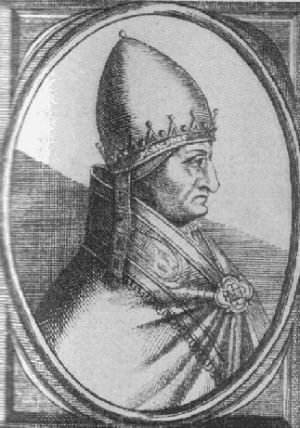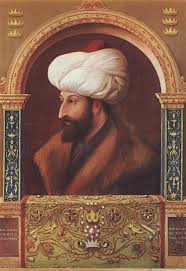Lost to the West: The Forgotten Byzantine Empire That Rescued Western Civilization
Lars Brownworth © 2010
I went into this book knowing very little about the Byzantine Empire. I recently read another of Lars' books,
The Sea Wolves: A History of the Vikings, which mentioned the B.E. enough to pique my interest. While not exhaustive, (or exhaust
ing for that matter) I closed this book with an understanding of the Byzantine Empire's place in the world, the role it played in European history, and the depth of the loss when it finally fell in 29 May 1453 to the Ottomans.
The Roman Empire fractured into East and West around 285 A.D. Newly appointed Emperor of the East, Constantine, (The Great) located his capital city in what is now
Istanbul, Turkey. This location was highly defensible and a hub in the spokes of the trade routes by land and sea. Constantine lost no time establishing his capital city, soon to be known as Constantinople which would become the heart of the Byzantine Empire. The new empire rejected Roman Polytheism in favor of Christianity (Orthodox) and took up Greek rather than Latin as was used in Western Rome. And like the Greeks, they treasured philosophy, education, culture and art. The separate path of cultural evolution between the two empires began immediately.
 |
He's not cruel, just accurate for the time-period.
O.K. so maybe the Red Wedding was a little much... |
What follows is a thousand years of history that reads like a George RR Martin novel. Emperors were killed by ambitious wives, generals, noble aristocrats, usurpers of all kinds from all directions, and they were not spared plague or other disease—emperors did not sleep easy. Children of the emperor grew up with assassins waiting behind every curtain—perhaps it was a stepmother, or even a brother. Whenever an emperor died without a heir apparent, the empire was thrown into civil war, until a new leader emerged from the chaos.
 |
| I thought they'd be hairier. |
The Byzantine Empire expanded and contracted as it “liberated” former Roman cities from “barbarians”. During most of that time the Western Roman Empire suffered barbarian (non-Roman) rule through the dark ages and early medieval times. The Byzantine Empire was a (mostly) benevolent patron to the West. For hundreds of years they shielded them from zealot invaders like the Persians, Arabs, Turks and Ottomans, until they were strong enough (with help from the East) to fully cast off the barbarian yolk. The West eventually emerged from their Dark Ages under Roman Catholic rule and had a tenuous relationship with the Orthodox faith of the eastern empire, despite all the aid they received.
 |
| How many Hail Mary's for betrayal? |
The West grew in power and influence and eventually turned on the East. The Byzantine Empire was already weakened by war, plague, and a series of inept rulers, then further so by the vicious bloodletting called the Crusades, the fourth of which directly attacked Constantinople. Vulnerable and surrounded by enemies, the Byzantine Empire officially converted from Orthodox to Roman Catholic, leveraged by the promise of unification of the empires for protection and fortification. Shortly thereafter the city fell to the Ottomans, unaided by the Pope.
The Ottoman army of eighty thousand was led by
Sultan Mehmed II. The city's defensive force numbered around seven thousand. They resisted the siege for about a month before the formidable walls finally crumbled under the assault of the newly minted cannons. The last great emperor Constantine XI, was valiant in his efforts to preserve the city, tirelessly fighting alongside the soldiers and citizens in its defense. It is said that when the wall was finally breached, Constantine rushed headlong into the flood of the enemy and was never seen again.
As the invaders poured into the city, I wanted to cry.
 |
| Nice work, Mehmed II. |
The Ottomans burned, slaughtered, raped, and thusly desecrated a thousand years of art, libraries, artifacts, history, philosophy and scholarly work by the most cultured people in all of Europe and Asia at the time. It was the only city, not to have suffered a successful invasion in the thousand plus year since it was established by Constantine the Great in 324 AD, and though it had its fair share of internal strife and bouts of iconoclasm (destruction of holy relics) it was largely intact. Ironically, once the ash settled in the ruined city, Sultan Mehmed II, sniffed away tears brought on by the destruction of the city (or perhaps some ash got in his eyes?) and claimed the title Caesar of the Roman Empire. The emperor of rubble and blood.
The exodus of the B.E.'s citizens brought them west, and Lars' credits this influx of people with giving rise to the cultural flowering known as the Renaissance.
Never before have I found history so interesting and engaging (fun?), and so easy to draw parallels to modern day as from Lars' books. It seems that often historians simply don't possess the rhetoric necessary to reach someone outside the circle of people they're trying to impress—or maybe they're just so inundated with the dates, names, and desire to be comprehensive, that assembling the pieces in the reader's mind is nigh impossible, at least for a lay person like me.
Noteworthy:
Several of the Byzantine Emperors were successful in reining in the power of the aristocracies. Some were ruthless in their taxation of the very rich to finance wars, public building projects, etc. During these times the empire flourished. The aristocracies were vast reservoirs of wealth. The Emperors who broke through the dams, and could keep the waters of wealth flowing, saw the empire replenished and flourishing. When the aristocracies, often through treachery, put their people on the throne the empire dried and decayed. The aristocrats gobbled up all the arable land and forced the working class into extreme hard labor to scratch out an existence as the empire's defense and infrastructure rotted.




















